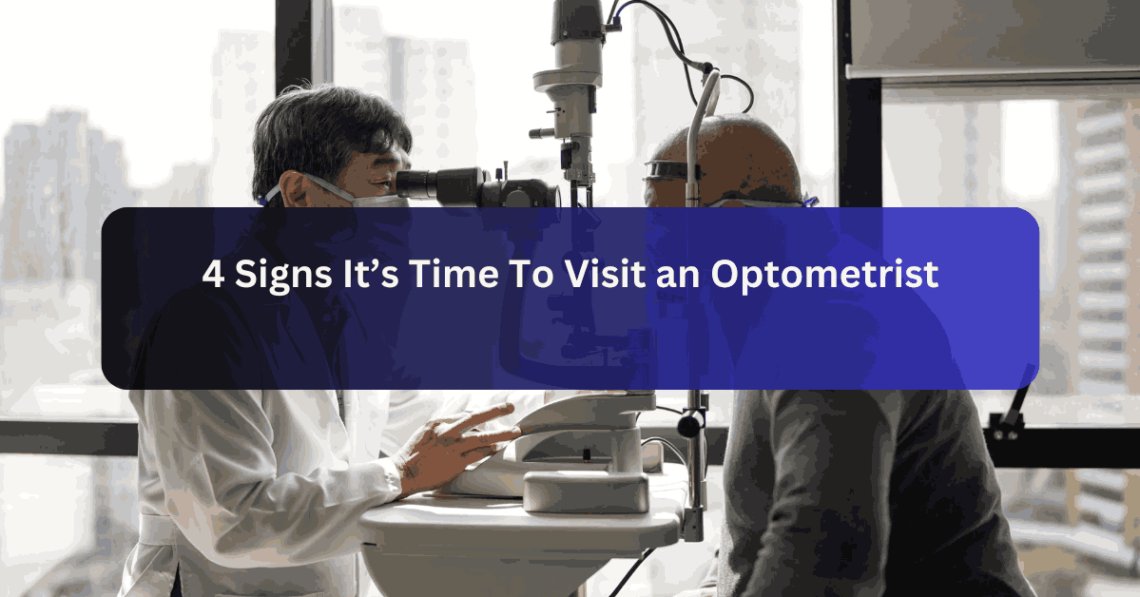
4 Signs It’s Time To Visit an Optometrist
Routine eye exams can help maintain good health and detect underlying issues early. An optometrist will help assess various aspects of your eye and vision to determine any diagnosis. Here are four signs it’s time to visit an eye care specialist:
1. Eye Strain and Headaches
Prolonged reading periods, using digital devices, or doing close-up work can strain the eye muscles. Glare and reflections on digital screens can cause the eyes to stress as they try to adjust to the changing contrast. Wearing glasses or contact lenses with an outdated or incorrect prescription can also contribute to headaches.
If the headaches persist, visit an optometrist for evaluation and personalized treatment. The eye expert can recommend several treatment plans, such as neurolens, to help manage symptoms and digital eye strain. This type of treatment can help address the misalignment of the eyes that can occur during extended periods of close-up work.
2. Dry Eyes
If your eyes feel sandy, gritty, or dry, consider booking an appointment with an eye specialist for diagnosis and treatment. Extended use of digital devices can reduce blink frequency, leading to insufficient tear distribution. Conditions such as rheumatoid arthritis, diabetes, and thyroid disorders can cause dry eyes in some cases.
A qualified specialist can prescribe medicated eye drops to foster tear production or reduce inflammation. The expert can utilize procedures that may apply heat and pressure to the eyelids to clear blocked oil glands, which helps to improve tear composition. Intense pulsed light also improves function and helps contribute to the production of tears to keep your eyes healthy.
3. Blurred Vision
Sudden or gradual blurring of vision could indicate refractive errors like nearsightedness, farsightedness, or astigmatism. Abrupt blurring might suggest acute issues like eye infections, inflammation, or the onset of diabetic retinopathy or macular degeneration. An eye care professional performs tests to assess visual acuity, refractive errors, and the health of the eye structures.
An optometrist can prescribe multifocal lenses to enable clear vision at various distances, including close-up reading, intermediate, and distance. Regular lens adjustments may help keep up with the vision changes over time.
4. Sensitivity to Light
Individuals with uncorrected nearsightedness, farsightedness, or astigmatism may experience increased light sensitivity. After certain eye surgeries or traumatic eye injuries, individuals may experience heightened sensitivity to light. If you have refractive errors, prescription glasses or contact lenses can help correct your vision and alleviate light sensitivity.
Some lenses can contribute to reduced glare and improved contrast sensitivity. The rigid central portion of designed lenses helps provide reliable optical clarity, reducing visual distortions and enhancing overall vision.
Book an Appointment With a Qualified Optometrist
Dry eyes, light sensitivity, eye strain, headaches, and blurred vision are some indicators to visit an optometrist. The eye care specialist can perform a visual acuity test to assess your ability to see letters or symbols at different distances. After examination, the expert can prescribe contact lenses to help manage vision issues. Schedule an appointment with a qualified optometrist for evaluation and treatment.
2)

TourUVW.com
You May Also Like

thesparkshop-inproduct-flower-style-casual-men-shirt-long-sleeve-and-slim-fit-mens-clothes
May 24, 2023
I Wont Accept Your Regrets Novel Updates Spoiler
July 12, 2023
